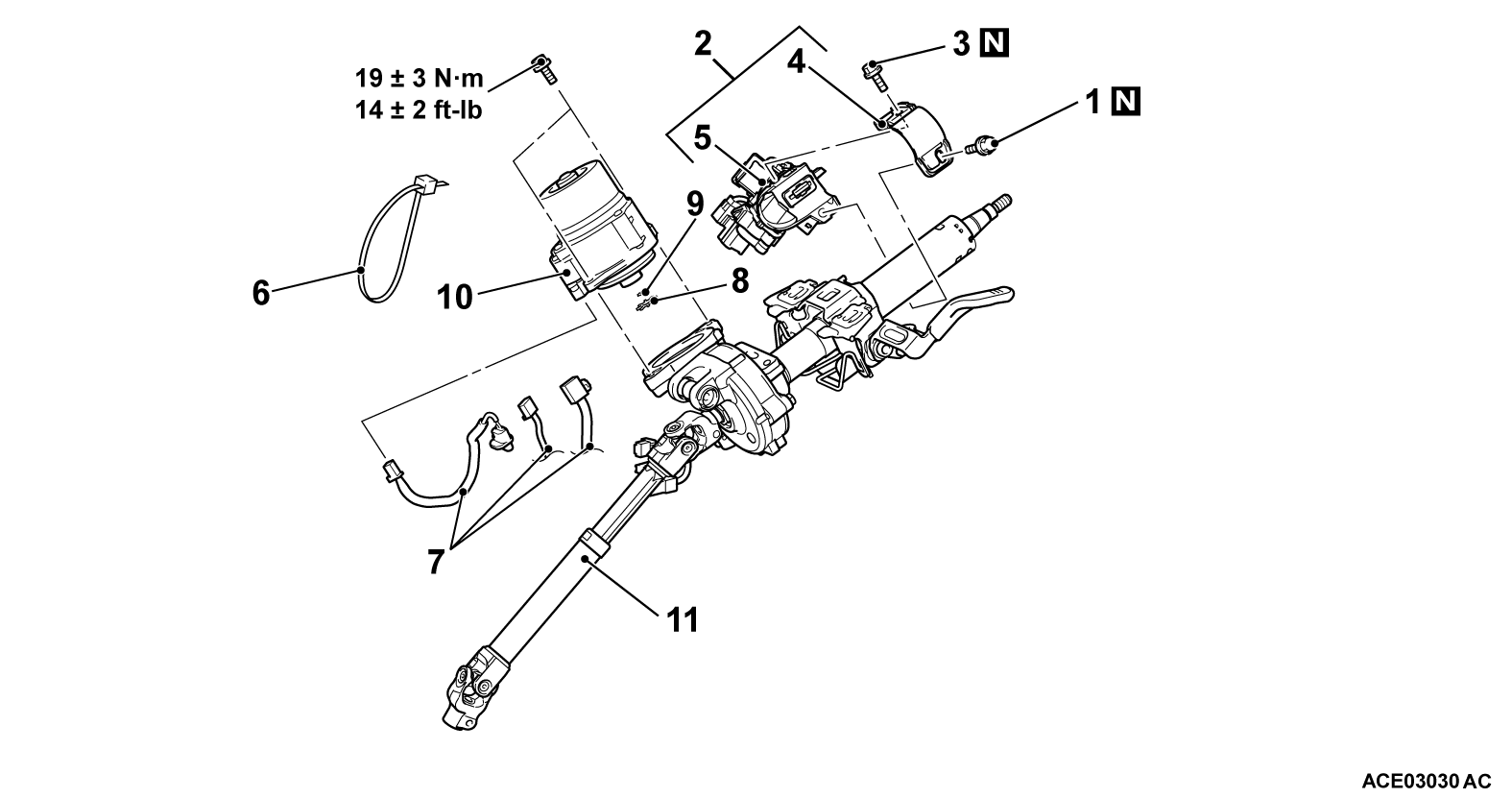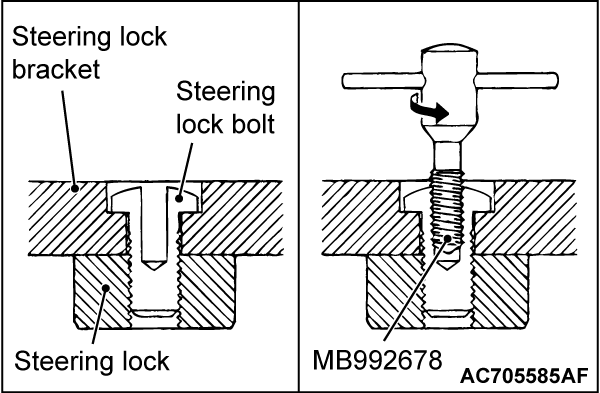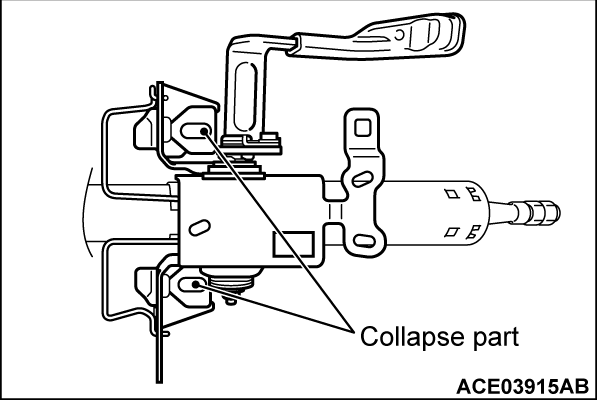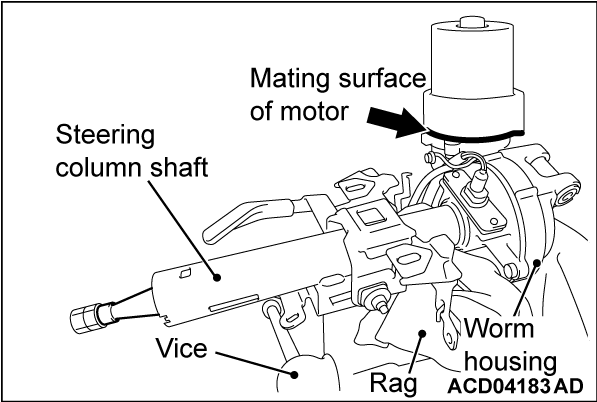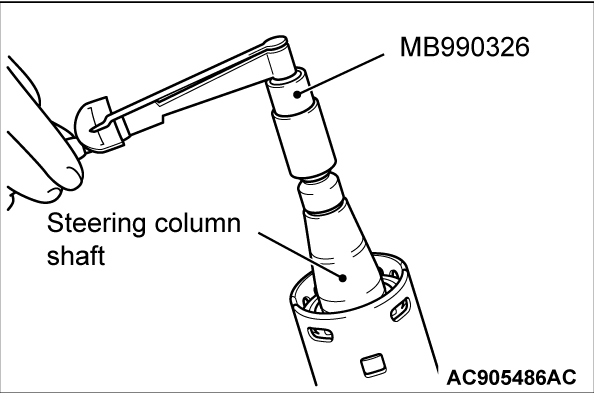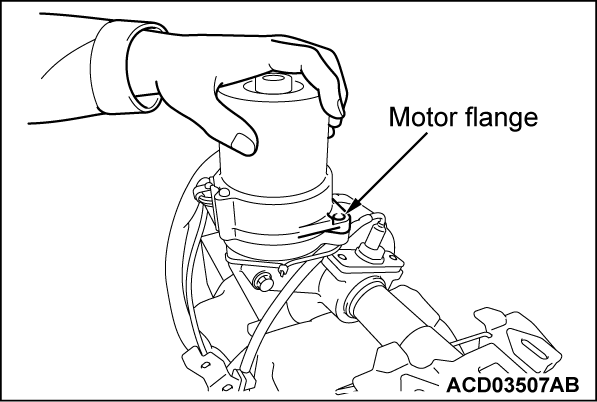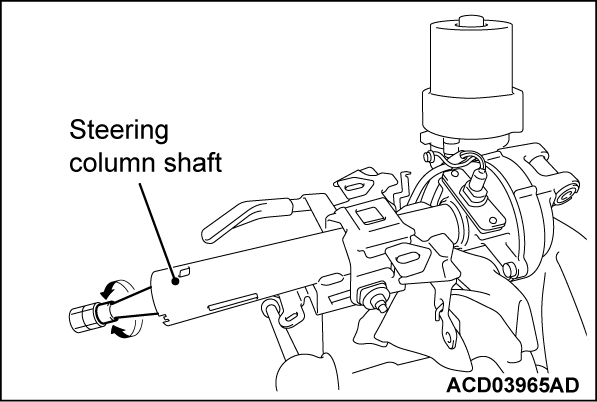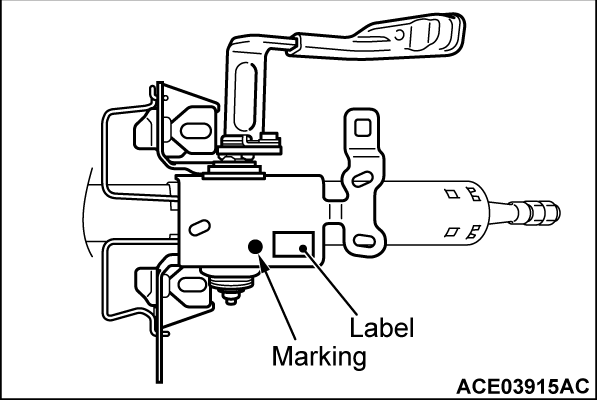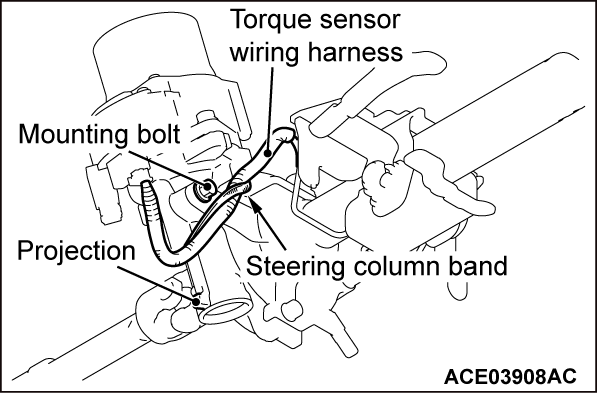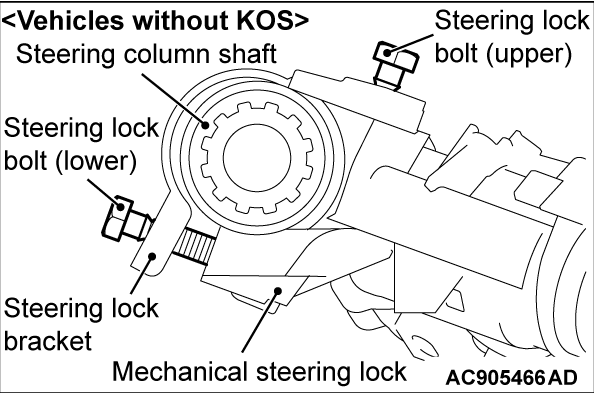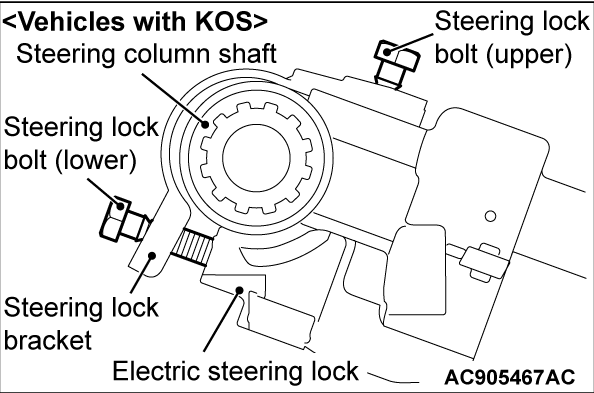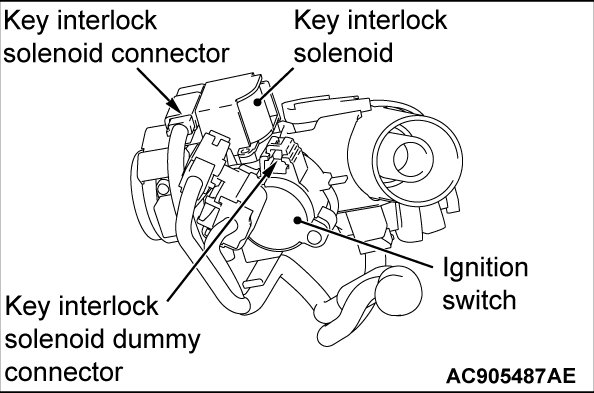DISASSEMBLY AND ASSEMBLY
Required Special Tools:
- MB990326: Preload socket
| note |
|
DISASSEMBLY SERVICE POINT
<<A>> STEERING LOCK BOLT REMOVAL
1. Use a drill to make a hole just deeply enough for the tap to stand on the steering lock bolt.
2. Remove the steering lock bolt using recommended tool screw extractor (MB992678) or equivalent.
<<B>> MOTOR (EPS-ECU) REMOVAL
| caution | Do not remove the collapse part (shown in the illustration). |
1. Remove the wiring harness.
2. Adjust the electric motor so that its mating surface is horizontal, and then secure the worm gear housing on the steering column shaft with a vice.
| caution |
|
3. Install the nut to the end of the steering column shaft. Then use the preload socket (Special tool: MB990326) to rotate the shaft at a rate of one turn per 4 to 6 seconds, and then measure the total rotation torque.
| note |
|
4. Remove the motor mounting bolts.
REASSEMBLY SERVICE POINT
>>A<< MOTOR (EPS-ECU) INSTALLATION
1. Insert the motor, and check that the motor flange moves with the bolts not tightened.
| caution |
|
2. Rotate the steering column shaft at a speed of approximately one turn per second. While doing so, tighten the electric motor mounting bolts alternately by hand.
| note | The steering column shaft can be rotated in either direction (right and left). |
3. Tighten the electric motor mounting bolts to the specified torque.
Tightening torque: 19 ± 3 N·m (14 ± 2 ft-lb·)
4. Install the two nut to the end of the steering column shaft. Then use the preload socket (Special tool: MB990326) to rotate the shaft at a speed of one turn per 4 to 6 seconds, and then measure the total rotation torque.
| note |
|
| caution | If the total rotation torque fluctuation compared with the value measured at removal is ±10% or more, remove the motor again and repeat installation steps 1, 2 and 3. |
5. Connect the wiring harness.
6. Use a black felt pen to apply a mark near the label as shown as a visual indication that this work has been completed.
>>B<< STEERING COLUMN BAND INSTALLATION
| caution |
|
Tie the wiring harness wires with the steering column band.
>>C<< STEERING LOCK/STEERING LOCK BRACKET/STEERING LOCK BOLT INSTALLATION
1. Secure the steering lock bracket to the steering lock with steering lock bolt (upper). Tighten the steering lock bolt until its head is broken off.
2. Insert the steering lock into the tip of the column shaft, fit the protrusion of the steering lock to the hole of the steering column shaft, install the steering lock and tighten the steering lock bolt (lower) until its head is broken off.
| caution | As for the mechanical steering lock for vehicles with CVT, connect the body side wiring harness connector to the key interlock solenoid connector. Do not connect the harness connector to the key interlock solenoid dummy connector. As for the mechanical steering lock for vehicles with M/T, connect the body side wiring harness connector to the key interlock solenoid dummy connector. |
![[Previous]](../../../buttons/fprev.png)
![[Next]](../../../buttons/fnext.png)

